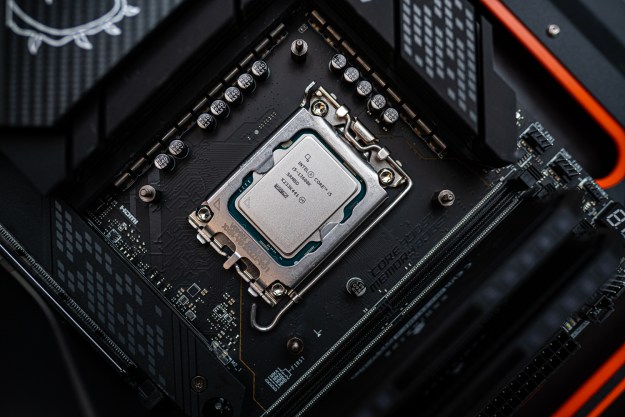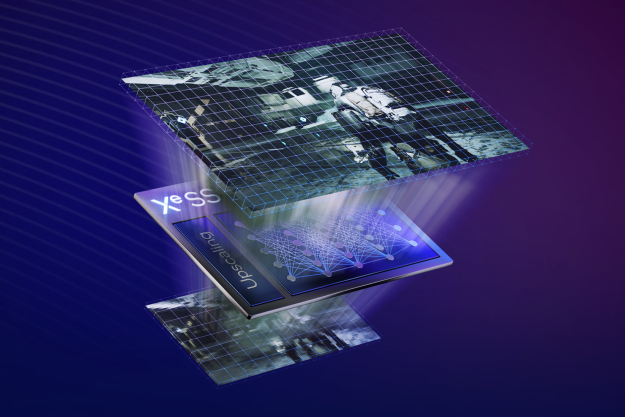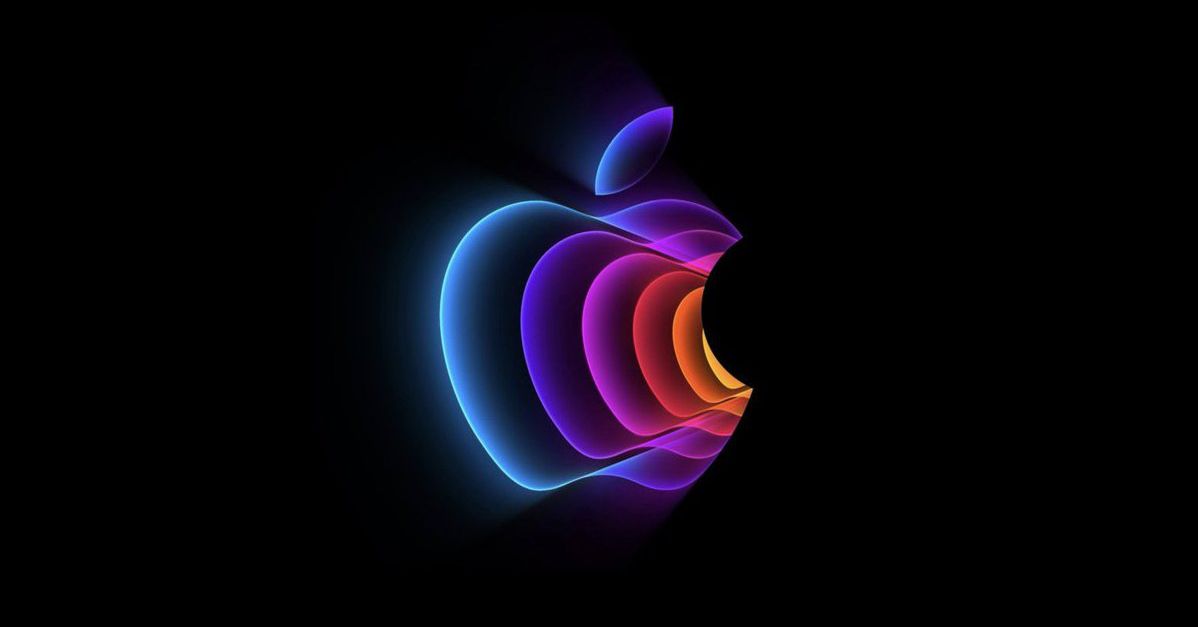Intel’s 14th-gen Raptor Lake refresh might be a major disappointment
Intel's upcoming 14th-gen Raptor Lake refresh might be a major disappointment, especially if a recent MSI leak is to be believed.
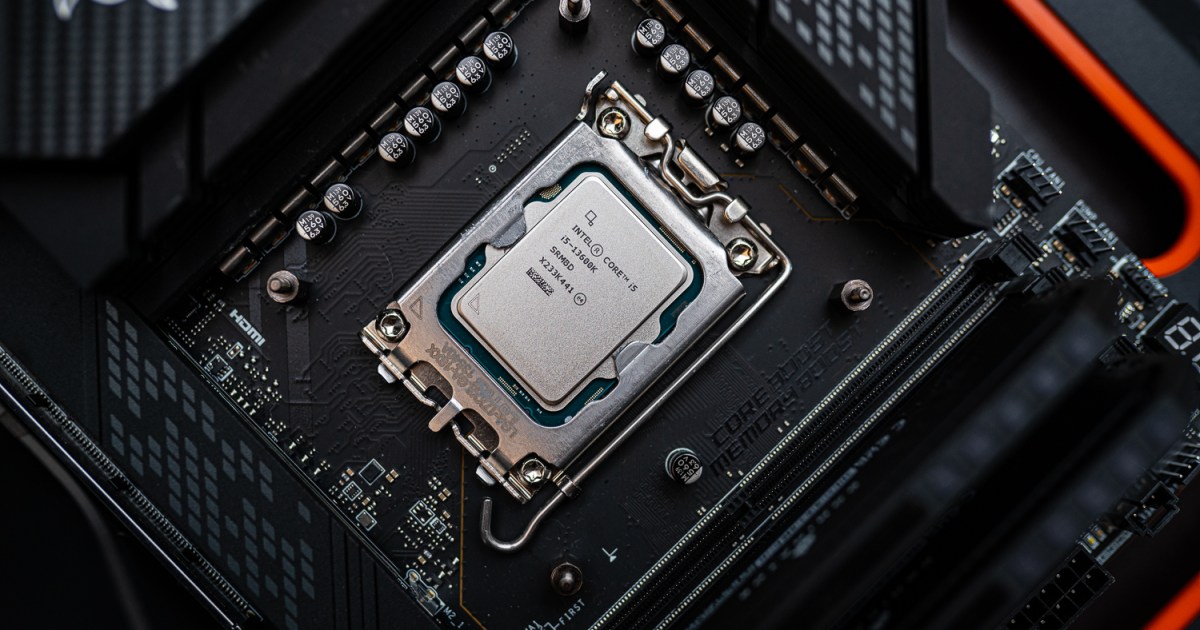
 An Intel 13th-generation 13600K. Jacob Roach / Digital Trends
An Intel 13th-generation 13600K. Jacob Roach / Digital TrendsWe know at this point that Intel doesn’t intend to release an entirely new generation for its desktop CPUs this year. The aptly named Raptor Lake refresh is rumored to launch next month at Intel Innovation, but a new leak suggests Intel may not have much to share on the desktop front.
For a brief time, MSI published a YouTube video showcasing its upcoming Intel 700 motherboards, as spotted by VideoCardz. Included in the presentation was a slide detailing the top chips from Intel’s upcoming range, including the Core i5-14600K, Core i7-14700K, and Core i9-14900K.
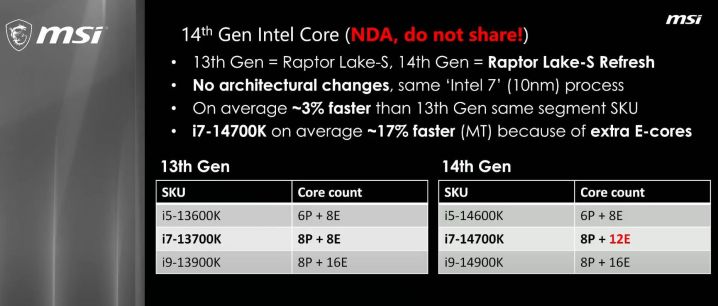 MSI
MSIThe slide claims the new chips are only 3% faster than their last-gen counterparts, which isn’t too surprising. The chips are built on the same Intel 7 (10nm) manufacturing process and they don’t include any changes to core counts. The only exception is the Core i7-14700K, which the slide says is jumping from eight to 12 Efficiency cores. This change, according to MSI, allows that chip to hit around 17% faster multi-threaded performance.
It seems Intel is focused elsewhere for performance gains. Another slide references an increased L3 cache on the CPUs, likely in response to chips like AMD’s Ryzen 7 7800X3D, along with support for higher-frequency DDR5 memory. As with 12th-gen Alder Lake and 13th-gen Raptor Lake, the Raptor Lake refresh is reported to use the LGA 1700 socket.
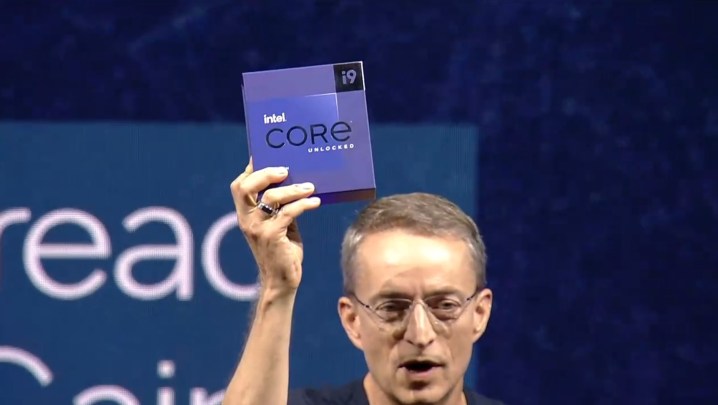 Intel
IntelUnfortunately, this isn’t the first time we’ve heard about middling performance gains from Intel’s impending desktop CPUs. Earlier in August, ASRock leaked that the chips offered between a 4% and 8% single-core improvement, along with an 8% to 15% multi-core improvement. That’s a more optimistic outlook than what MSI shared, but still not great.
And in July, another leaker claimed that Intel would be sticking with the same quad-core configuration for its i3 chips. Over the past few generations, the Core i3-12100F and Core i3-13100F have been great budget gaming CPUs, but a core bump would certainly help them be more competitive. This leak also showed the same core counts as the MSI slide, along with showcasing up to 36MB of L3 cache and a 5.8GHz clock speed for the range.
As always, it’s important to handle these rumors as exactly what they are: rumors. There’s a good chance we’ll hear official details about the Raptor Lake refresh at Intel Innovation 2023 on September 19, so we won’t have to wait long until the cat’s out of the bag.
Editors' Recommendations
ASRock may have released a major leak about Intel Raptor Lake Intel’s most powerful CPUs may not launch until 2024 Intel 14th-gen Meteor Lake: news, rumors, release date speculation CES 2023: Intel’s new 13th-gen CPUs are faster, cheaper, and more efficient Intel’s 24-core laptop CPU might outclass desktop i9 processorsJacob Roach is a writer covering computing and gaming at Digital Trends. After realizing Crysis wouldn't run on a laptop, he…
Intel Raptor Lake CPUs: Everything we know about the 13th-gen processors
Raptor Lake is Intel's 13th generation of processors, and it's one of the most exciting hardware launches of the year. Following up on the momentum it built with its Alder Lake line of CPUs, Intel is looking to retain some of the hard-fought performance crowns. It's got new and stiffer competition, though, in the form of AMD's Ryzen 7000 series of Zen 4 CPUs, which have already impressed for their efficiency and performance.
How will these new CPU lines fair when going head to head? Here's everything you need to know about Raptor Lake.
Pricing and availability
Intel XeSS is already disappointing, but there’s still hope
Intel's hotly anticipated Xe Supersampling (XeSS) tech is finally here, and a couple weeks before Intel's Arc Alchemist GPUs show up. It's available now in Death Stranding and Shadow of the Tomb Raider, and more games are sure to come. But right now, it's really difficult to recommend turning XeSS on.
Bugs, lacking performance, and poor image quality have sent XeSS off to a rough start. Although there are glimmers of hope (especially with Arc's native usage of XeSS), Intel has a lot of work ahead to get XeSS on the level of competing features from AMD and Nvidia.
Spotty performance
Why it’s hard recommending AMD Ryzen 7000 after Intel’s Raptor Lake launch
AMD's Ryzen 9 7950X is the best processor I've tested -- and it's not even close. That might surprise you to find out considering I don't recommend upgrading right now.
Although Ryzen 7000 is a massive boost for AMD, high prices, limited options for gamers, and Intel's looming Raptor Lake launch makes right now the worst time to upgrade. Team Red may win the decades-old battle between AMD and Intel this generation, but it's still too soon to tell. And there's no rush to upgrade now.
Raptor Lake looms

 Konoly
Konoly 
